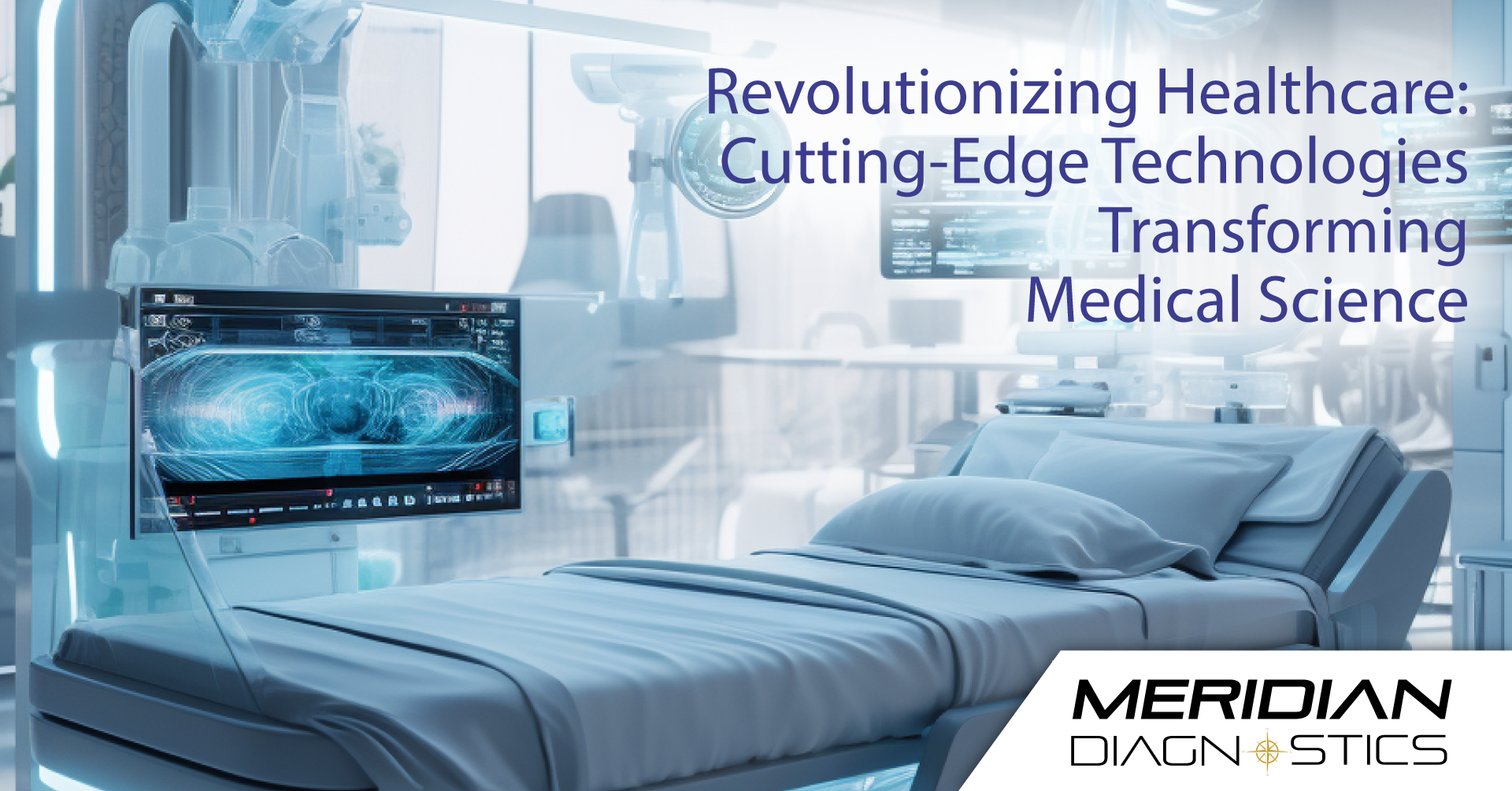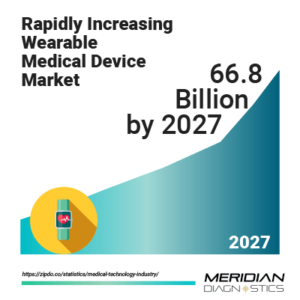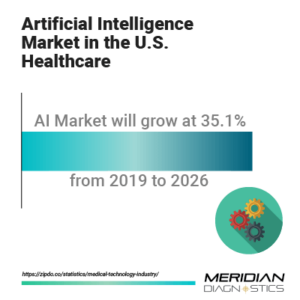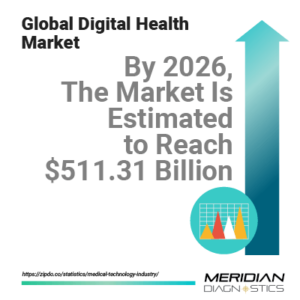Revolutionizing Healthcare: Cutting-Edge Technologies Transforming Medical Science in 2023

The landscape of healthcare is rapidly evolving, driven by groundbreaking technologies that promise to usher in a new era of medical science and patient care. In 2023, these innovations are poised to reshape the way we understand, diagnose, and treat various diseases. From the emergence of wearable medical devices to the power of artificial intelligence in drug discovery, here's a comprehensive look at the transformative technologies that are changing the face of healthcare.
Wearable Medical Devices: A Glimpse into the Future of Personal Health
 Wearable medical devices have come a long way, and they are now at the forefront of a healthcare revolution. The Internet of Medical Things (IoMT) has created a network of interconnected medical devices and health software that enables seamless data sharing. This has led to significant improvements in the sensitivity and capabilities of these devices. Smartwatches, like the Apple Watch and Fitbit, have evolved to the point where they can monitor various health parameters, such as blood pressure and heart rate, in real time. This continuous health monitoring empowers individuals to take charge of their well-being by allowing them to spot potential health issues early.
Wearable medical devices have come a long way, and they are now at the forefront of a healthcare revolution. The Internet of Medical Things (IoMT) has created a network of interconnected medical devices and health software that enables seamless data sharing. This has led to significant improvements in the sensitivity and capabilities of these devices. Smartwatches, like the Apple Watch and Fitbit, have evolved to the point where they can monitor various health parameters, such as blood pressure and heart rate, in real time. This continuous health monitoring empowers individuals to take charge of their well-being by allowing them to spot potential health issues early.
One remarkable development in the realm of wearables is the potential to detect mental illnesses through activity levels, sleep patterns, and heart rate. Moreover, Android and iOS apps now enable physicians to remotely access these data, enhancing early diagnosis and personalized treatment options. Looking ahead, it is anticipated that wearables will become network entry/exit points with in-device analytics, eliminating the need to send data to the cloud for processing. This advancement will not only enhance patient privacy but also expedite the availability of critical health information.
Machine Learning and Artificial Intelligence: Revolutionizing Drug Discovery
 The process of discovering new drugs is notoriously time-consuming and resource-intensive. However, the integration of machine learning (ML) and artificial intelligence (AI) into medical research is poised to change the game. According to the Pharmaceutical Research and Manufacturers of America, only a small fraction of candidate drugs make it through the rigorous clinical testing process. The potential of ML algorithms to outperform humans in the drug discovery process is promising, with the market for AI/ML tools in healthcare projected to reach $20 million in 2023.
The process of discovering new drugs is notoriously time-consuming and resource-intensive. However, the integration of machine learning (ML) and artificial intelligence (AI) into medical research is poised to change the game. According to the Pharmaceutical Research and Manufacturers of America, only a small fraction of candidate drugs make it through the rigorous clinical testing process. The potential of ML algorithms to outperform humans in the drug discovery process is promising, with the market for AI/ML tools in healthcare projected to reach $20 million in 2023.
A groundbreaking achievement in this field is the creation of the first drug engineered solely by machine learning for the treatment of obsessive-compulsive disorder (OCD). What makes this feat even more remarkable is the incredible speed at which it was accomplished—just 12 months, compared to the typical five-year drug development timeline. AI models are now being used to simulate chemical reactions, greatly enhancing laboratory testing efficiency and accelerating the discovery of valuable medications. We can expect further developments in AI/ML technologies to drive progress in drug discovery throughout 2023.
Nanomedicine: A Glimpse into the Future of Disease Treatment
In 2023, nanomedicine is positioned to play a pivotal role in the diagnosis and treatment of various diseases. Recent developments have brought us closer to a world where tiny self-replicating organisms, known as "xenobots," created from stem cells can be manipulated using AI-driven computer simulations. These xenobots could be instrumental in advancing cancer research by targeting cancer cells within the human body or collecting microplastics from the ocean.
The potential applications of nanomedicine are vast, encompassing genetic, oncologic, and autoimmune diseases. As researchers continue to explore this frontier, we anticipate a clearer picture of the significant contributions nanomedicine can make to the field of medicine. These advances hold the promise of revolutionizing not only disease treatment but also diagnostics and the understanding of genetic and autoimmune disorders.
Telemedicine: Bridging Gaps and Transforming Healthcare Delivery
 The global COVID-19 pandemic expedited the adoption of telemedicine and remote healthcare services, marking 2020 as a pivotal year in healthcare communication. Fast forward to 2023, and telemedicine is not just a response to a crisis; it is a vital component of modern healthcare. This form of healthcare delivery relies on the internet, video conferencing tools, and streaming services to connect patients with medical professionals.
The global COVID-19 pandemic expedited the adoption of telemedicine and remote healthcare services, marking 2020 as a pivotal year in healthcare communication. Fast forward to 2023, and telemedicine is not just a response to a crisis; it is a vital component of modern healthcare. This form of healthcare delivery relies on the internet, video conferencing tools, and streaming services to connect patients with medical professionals.
Internet hospitals are now becoming increasingly common in China, and the United States is also embracing remote medical services, especially with the advent of 5G technology. Telemedicine has the potential to reduce the burden on physicians, lower facility costs, and improve healthcare accessibility. It is particularly promising in mental healthcare, known as telepsychiatry, and offers benefits to clinical trial participants by eliminating the need for frequent travel.
The rising costs of in-person healthcare and the ongoing global shortage of medical professionals make telemedicine a vital trend in 2023. This shift towards remote healthcare is expected to continue transforming the way patients receive medical care and the overall healthcare landscape.
Clustered Regularly Interspaced Short Palindromic Repeats (CRISPR): A Revolutionary Gene-Editing Technology
Clustered Regularly Interspaced Short Palindromic Repeats (CRISPR) gene-editing technology is positioned to revolutionize disease treatment. It holds the potential to make significant advances in the fight against deadly diseases like cancer and HIV in a matter of years. By harnessing the natural mechanisms of invading viruses and cutting out infected DNA strands, CRISPR can alter cell mutations, potentially transforming the treatment of rare conditions such as cystic fibrosis and sickle cell disease.
However, the use of CRISPR also raises important ethical concerns. The ability to modify the genomes of children has ignited discussions about the boundaries of genetic engineering. In 2020, a team of scientists in China faced prosecution after claiming to have created the world's first "designer babies" using CRISPR. While the technology holds immense promise, its ethical implications must be carefully addressed.
Smart Bandages: Paving the Way for Accelerated Healing
Smart bandages are a remarkable innovation that could transform wound care. Developed by a team at Stanford University in the United States, these bandages incorporate sensors that monitor wound healing. The bandage can promote faster wound closure, increase blood flow to injured tissue, and reduce scar formation. A thin electronic layer embedded in the bandage includes temperature sensors that monitor the wound's progress and trigger electrical stimulation when necessary to accelerate tissue closure.
Although this technology shows great promise, there are challenges to overcome, such as cost and data storage issues before it can be mass-produced. However, smart bandages offer significant potential to assist individuals with suppressed immune systems and conditions like diabetes, where slow-healing wounds are common.
The Clinical Laboratory of the Future: Trends Shaping Healthcare
The clinical laboratory industry is undergoing a transformation, driven by key technology trends that address systemic issues and enhance preparedness for health emergencies. "Understanding automation is one of the critical trends shaping clinical laboratories. The long-standing labor shortage in clinical laboratories reached a tipping point with the onset of the COVID-19 pandemic, necessitating rapid capacity expansion and the use for more innovative methods surrounding routine laboratory operations," says Meridian Diagnostics' CEO Rhyan Walcott. Automation, particularly in pre-analytic and post-analytic steps of testing workflows, has been a solution to streamline processes and reduce human errors.
Collaboration and capacity sharing through partnerships have emerged as a strategy for optimizing resources and maintaining preparedness for future healthcare crises. Clinical laboratories are now seeking ways to establish interfaces between electronic health record (EHR) systems and shared barcoding, labeling, and routing systems. Meridian Diagnostics offers qualifying clients the option to integrate their EHR or EMR systems with our customizable cloud-based user-friendly LIS (laboratory information system). Contact us today to learn more about how Meridian Diagnostics can help your healthcare practice become more efficient with our seamless onboarding processes and FAST turnaround-time on all molecular UTI, fungus, wound, and toxicology specimens.

